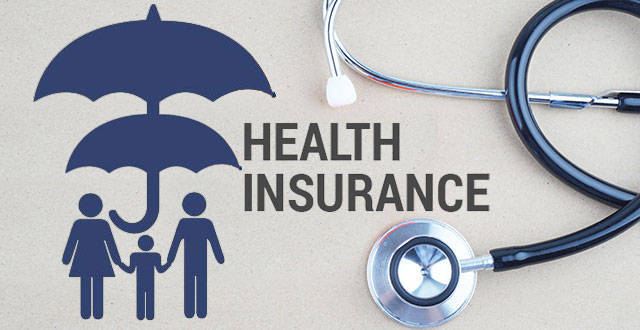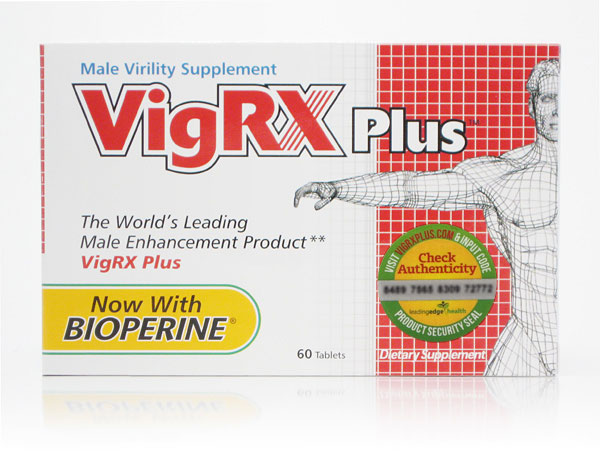Where to Find Affordable Health Insurance in New York
Unlock Affordable Health Insurance in New York ??? | Your Path to Coverage Awaits! ?? Get Started Today! ??

How to Choose Health Insurance in New York A Comprehensive Guide
Health insurance is a critical aspect of your financial and physical well-being. In New York, where healthcare costs are notoriously high, selecting the right health insurance plan is paramount. With various options available, understanding how to make the best choice can be challenging. This comprehensive guide will walk you through the steps of choosing health insurance in New York, covering everything from plan comparisons to cost considerations and even specialized coverage options.
Step-by-Step Guide for Finding the Best Insurance
- Assess Your Needs: The first step in choosing health insurance in New York is to assess your needs. Consider your current health, any ongoing medical conditions, and your anticipated medical expenses for the year. This evaluation will help you determine what type of coverage is suitable for you.
- Compare Health Plan Networks: Insurance plans often have networks of doctors, hospitals, and healthcare providers. Ensure your preferred healthcare providers are in-network to maximize coverage and minimize out-of-pocket expenses. You can check provider directories on insurance company websites or contact them directly.
- Examine the Average Cost of Health Insurance: The cost of health insurance in New York varies widely depending on factors like age, location, and coverage type. On average, individual health insurance premiums can range from $300 to $700 per month. Family plans can be significantly more expensive. Obtain quotes from multiple insurers to get a sense of the average costs for your specific situation.
- Understand How the Plan Tier Affects Costs: Health insurance plans are categorized into tiers, typically bronze, silver, gold, and platinum. Bronze plans have lower premiums but higher out-of-pocket costs, while platinum plans have higher premiums and lower out-of-pocket costs. Choose a tier that aligns with your health needs and budget.
- Consider Family Size: Family size significantly affects health insurance costs. Plans are often priced based on the number of family members covered. If you have dependents, carefully consider their healthcare needs when selecting a plan.
- Choosing the Best Health Insurance: Look beyond premiums and deductibles. Consider factors like coverage for prescription drugs, preventive care, mental health services, and maternity care. Evaluate each plan's coverage comprehensively to ensure it meets your specific needs.
- Short-Term Health Insurance: Short-term health insurance plans provide coverage for a limited period, typically up to 364 days. They are a viable option if you have a gap in coverage or need temporary insurance. However, they may not offer the same level of protection as long-term plans.
- Medicaid Health Insurance Coverage: If you have a low income, you may qualify for Medicaid, a government program that provides free or low-cost healthcare coverage. Eligibility is based on income and family size. Check the New York State Medicaid website for eligibility requirements and application details.
- Child Health Coverage: The Children's Health Insurance Program (CHIP) in New York provides low-cost or free health coverage for children in low-income families. It covers a wide range of medical services, including doctor's visits, dental care, and immunizations.
- Individual and Family Health Insurance Companies in New York: New York has several health insurance companies, including Empire BlueCross BlueShield, Healthfirst, and Fidelis Care, among others. Research each insurer's reputation, customer reviews, and the plans they offer to find the best fit for your needs.
- Saving Money on Health Insurance: There are several ways to save money on health insurance in New York. Consider high-deductible plans with Health Savings Accounts (HSAs) to reduce premiums and save for future medical expenses tax-free. Also, explore subsidies through the New York State of Health marketplace if you qualify based on income.
- Determining the Best Health Insurance Plan: The best health insurance plan for you depends on your unique circumstances. It's essential to strike a balance between affordability and coverage. Consider consulting with an insurance broker or using online comparison tools to find the plan that best suits your needs.
How Health Insurance Covers Expenses
Health insurance plans in New York typically cover various medical expenses, including:
- Preventive Care: Most plans cover preventive services, such as vaccinations, screenings, and wellness check-ups, at no additional cost to the policyholder.
- Doctor Visits: Insurance plans usually cover a portion of your doctor's visit fees, known as the co-payment or co-insurance.
- Hospitalization: Inpatient care, surgeries, and hospital stays are covered by health insurance, but you may be responsible for a portion of the costs, depending on your plan.
- Prescription Drugs: Health insurance plans often include coverage for prescription medications, with varying levels of cost-sharing.
- Emergency Care: Emergency room visits are generally covered, but be aware of potential additional charges if the facility is out-of-network.
- Mental Health Services: Many insurance plans provide coverage for mental health and substance abuse services, including therapy and counseling.
- Maternity Care: Health insurance plans must cover maternity care, including prenatal, delivery, and postnatal care.
- Specialized Services: Depending on your plan, you may have coverage for specialized services like physical therapy, chiropractic care, and durable medical equipment.
- Dental and Vision: Dental and vision coverage is typically not included in standard health insurance plans but can be purchased as separate policies or as part of some comprehensive health plans.
- Short-Term and Medicare Coverage: Short-term health insurance plans and Medicare have their own sets of coverage guidelines, so it's essential to review these policies separately.
New York Medical Insurance Statistics
Understanding the healthcare landscape in New York can help you make informed decisions when choosing health insurance. Here are some key statistics:
- Number of Uninsured: As of my last knowledge update in September 2021, New York had made significant strides in reducing the uninsured rate. The state's uninsured rate was around 4.7%, which was lower than the national average.
- Healthcare Costs: New York consistently ranks among the states with higher healthcare costs. Premiums, deductibles, and out-of-pocket expenses tend to be higher in New York compared to some other states.
- Medicaid Expansion: New York expanded Medicaid under the Affordable Care Act (ACA), providing coverage to more low-income individuals and families. This expansion improved access to healthcare for many residents.
- Health Insurance Marketplace: The New York State of Health marketplace is where individuals and families can shop for and enroll in health insurance plans. It offers subsidies to help lower-income individuals afford coverage.
- Healthcare Providers: New York boasts a wide network of healthcare providers, including renowned hospitals, specialized clinics, and medical professionals. However, the availability of providers may vary by location within the state.
Please note that these statistics may have changed since my last update in September 2021, so it's crucial to verify the most recent data when making healthcare decisions.
Health Insurance Plans for Every Stage of Life
Your healthcare needs change throughout your life, and your health insurance should adapt accordingly. Here's a brief overview of the types of health insurance plans suitable for different life stages:
- Young Adults: In your 20s, you may prioritize affordability. High-deductible health plans with HSAs can be a cost-effective choice, especially if you're healthy.
- Starting a Family: If you're planning to start a family, look for plans with comprehensive maternity coverage. Family plans that cover children's healthcare needs are also crucial.
Middle Age: As you enter your 30s and 40s, you might have more stable healthcare needs. Consider a plan with a balance of coverage and affordability. Regular check-ups and preventive care become increasingly important.
- Pre-Retirement: Approaching retirement, you may start thinking about Medicare. Understanding the different parts of Medicare (Part A, B, C, and D) and when to enroll is crucial. You may also explore Medicare Advantage plans for more comprehensive coverage.
- Retirement: Once you're eligible for Medicare, you'll want to supplement it with Medigap (Medicare Supplement) or Medicare Advantage plans to fill in the gaps in coverage. Dental and vision insurance can also be essential during retirement.
- Seniors: In your senior years, your healthcare needs may become more complex. Ensure your insurance plan provides adequate coverage for chronic conditions and prescription drugs. Long-term care insurance is another consideration to help cover the cost of nursing home or home health care.
Dental and Vision Coverage
While standard health insurance plans may not include dental and vision coverage, these are essential aspects of your overall health. Many insurers offer standalone dental and vision plans or allow you to add them to your health insurance policy. Here's why you should consider dental and vision coverage:
- Dental Care: Regular dental check-ups can help prevent serious oral health issues. Dental insurance covers routine cleanings, fillings, and more extensive procedures like root canals and crowns.
- Vision Care: Annual eye exams are crucial for detecting vision problems and maintaining overall eye health. Vision insurance typically covers exams, eyeglasses, contact lenses, and even laser eye surgery in some cases.
- Combined Plans: Some insurers offer combined dental and vision plans, which can be more cost-effective than purchasing separate policies.
Short-Term Health Insurance
Short-term health insurance plans provide coverage for a limited duration, typically up to 364 days, making them a suitable option for certain situations:
- Bridge Gaps in Coverage: Short-term plans are ideal if you're between jobs or waiting for employer-sponsored coverage to begin.
- Temporary Residents: If you're temporarily residing in New York, such as for work or education, short-term insurance can provide essential coverage during your stay.
- Affordability: Short-term plans often have lower premiums than traditional health insurance. However, they may not provide as comprehensive coverage and usually exclude pre-existing conditions.
Medicare
Medicare is a federal health insurance program primarily designed for individuals aged 65 and older. It also covers younger individuals with certain disabilities. In New York, as in other states, Medicare has four main parts:
- Medicare Part A: Covers hospital care, skilled nursing facility care, hospice, and home healthcare services.
- Medicare Part B: Covers medical services like doctor visits, outpatient care, and preventive services.
- Medicare Part C (Medicare Advantage): Offers an alternative to Original Medicare (Parts A and B) and often includes prescription drug coverage (Part D).
- Medicare Part D: Provides prescription drug coverage.
Understanding when and how to enroll in Medicare is crucial to avoid penalties and ensure you receive the coverage you need. Many individuals also choose to supplement their Medicare coverage with Medigap (Medicare Supplement) plans for additional benefits and reduced out-of-pocket costs.
Including Parents in Group Medical Insurance
Including parents in your group medical insurance plan can be a thoughtful and practical choice, especially if your parents are elderly and need healthcare coverage. Here are some considerations:
- Eligibility: Check with your employer or insurance provider to confirm whether they allow parents to be added to your group plan. Eligibility requirements may vary.
- Cost: Adding parents to your group plan may increase your monthly premiums. Consider the additional cost and whether it's affordable for your budget.
- Coverage: Review the coverage provided to your parents, including doctors, hospitals, and prescription drug coverage. Ensure it meets their specific healthcare needs.
- Alternatives: If adding your parents to your group plan is not feasible or cost-effective, explore other options like separate Medicare plans or Medicaid if they qualify based on income.
- Consult with an Expert: Consider speaking with an insurance broker or HR representative to understand the implications of adding your parents to your plan fully.
choosing health insurance in New York requires careful consideration of your individual and family's needs, budget, and the available options. Start by assessing your healthcare requirements and understanding the coverage offered by different plans. Compare costs, provider networks, and additional benefits like dental and vision coverage. Don't forget to explore government programs like Medicaid and CHIP if you qualify. Ultimately, the best health insurance plan for you will align with your specific circumstances and provide the necessary protection for your health and financial well-being.
What's Your Reaction?










 " alt="VigRX Plus Ingredients & Benefits Complete UK Guide" class="lazyload img-external" onerror='https://www.charolottetimes46.com/assets/img/bg_slider.png' width="650" height="433">
" alt="VigRX Plus Ingredients & Benefits Complete UK Guide" class="lazyload img-external" onerror='https://www.charolottetimes46.com/assets/img/bg_slider.png' width="650" height="433">










